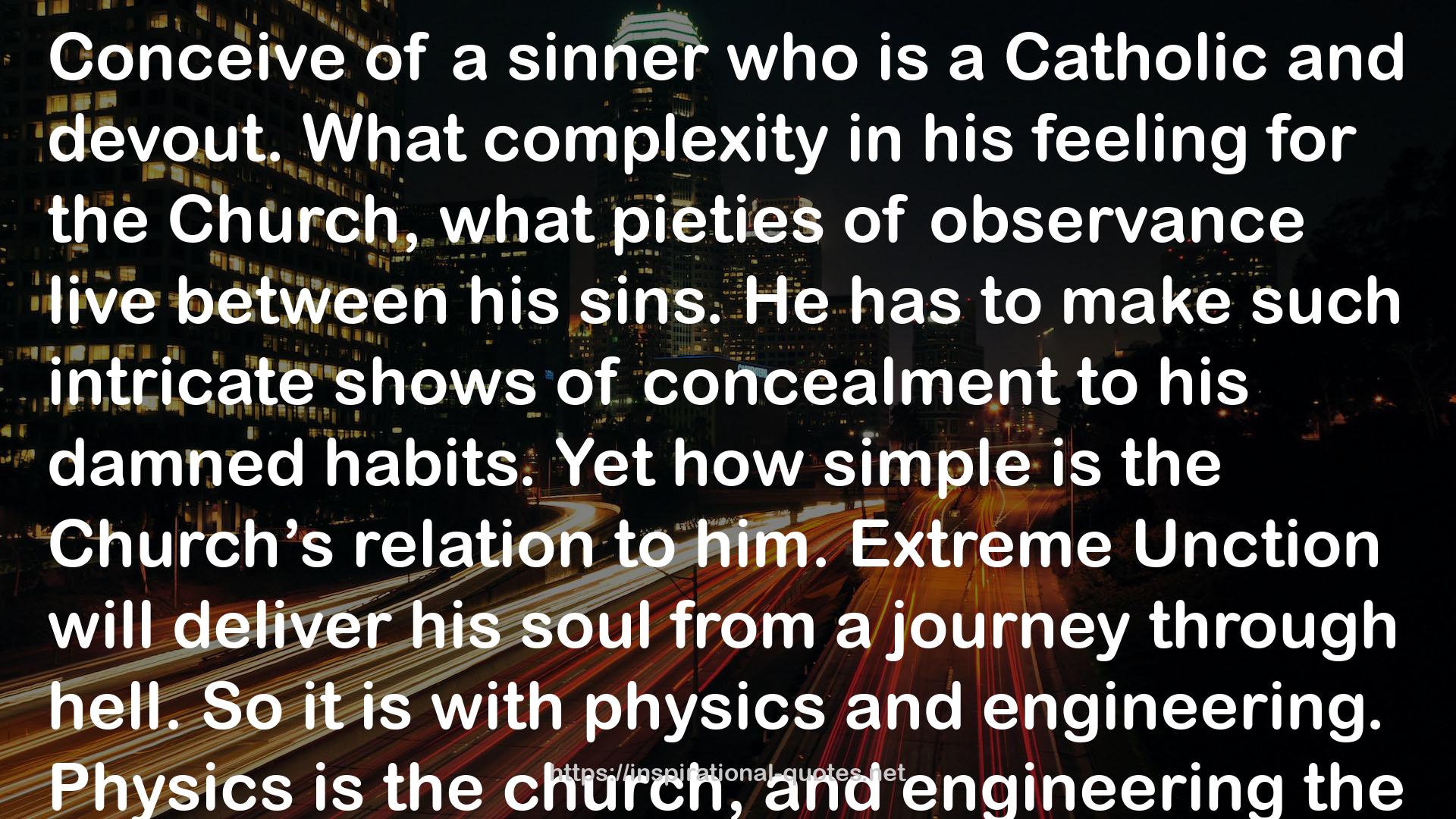" Conceive of a sinner who is a Catholic and devout. What complexity in his feeling for the Church, what pieties of observance live between his sins. He has to make such intricate shows of concealment to his damned habits. Yet how simple is the Church’s relation to him. Extreme Unction will deliver his soul from a journey through hell.
So it is with physics and engineering. Physics is the church, and engineering the most devout sinner. Physics is the domain of beauty, law, order, awe, and mystery of the purest sort; engineering is partial observance of the laws, and puttering with machines which never work quite as they should work: engineering, like acts of sin, is the process of proceeding boldly into complex and often forbidden matters about which one does not know enough – the laws remain to be elucidated–but the experience of the past and hunger for the taste of the new experience attract one forward. So bridges were built long before men could perform the mathematics of the bending moment. "
― Norman Mailer ,
Image for Quotes

